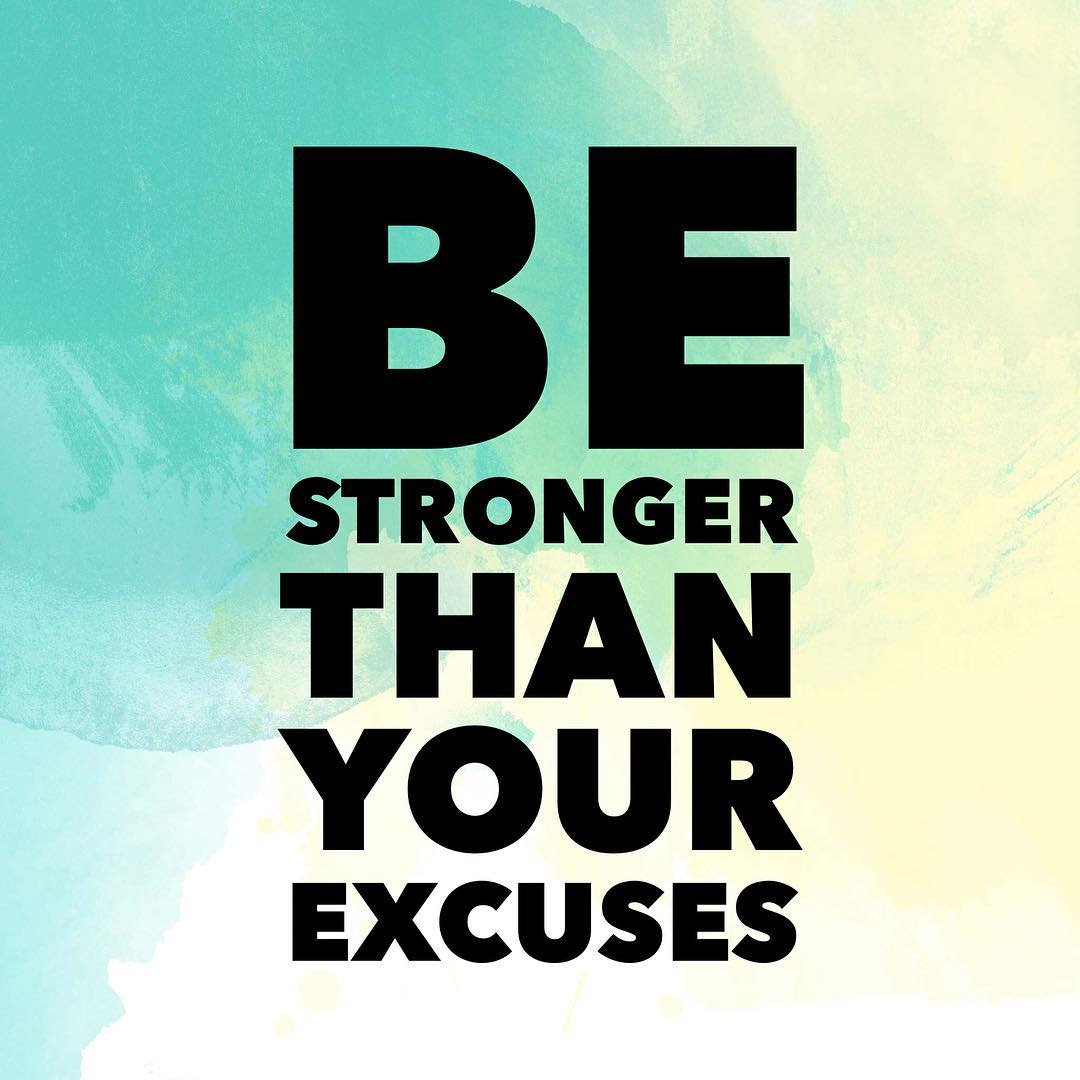
Did you succumb to the leftover sweets at the office? Or the *small glass of wine with a friend? We humans are fantastic at picking from the plethora of ready-to-use excuses to limit our own capabilities – be they physically (going to the gym), mentally (studying for the test) or even emotionally (being nicer). Why do we do this?
Excuse Me?
Psychologists place excuse-making in the ‘self-handicapping’ category – that is, it’s a behavior we express that hurts our own performance and motivation. It serves as a distraction of sorts that prevents us from achieving the task, but it stems from a deeper, unconscious desire to protect ourselves (our Ego, if you asked Freud) against anxiety and shame. And the more anxious or ashamed we are likely to feel, the more likely we are to build barriers that impede our chances of attaining a goal. Excuses aim to shift the focus from issues pertaining to our sense of self to issues that are relatively less central. For example: someone asks you why you failed the test. Anxiety and shame ensue. Your subconscious quickly tries to protect your sense of self from being attacked or criticized, and you blurt out – the test was unfair! This shifts the focus from your lack of preparation to the external source that was ultimately out of your control. Same with dropping your daily workouts – it was too cold outside to leave! Or your dietary changes – too hard! In a way, this self-protective mechanism works. You feel less burdened, less anxious and…off the hook. But is this a good thing?
For Andy’s take on the ego, check out his blog post on the inverted ego.
The Good, the Bad, and the Ugly
According to University of Florida researchers1, there are both advantages and disadvantages to excuse-making. Excuses can actually be beneficial if the end result is a sheltered self-esteem, low anxiety and depression, and even a boosted immune system. Sometimes when we are given a ‘get out of jail’ card, we may perform better the next time because we’re no longer suffering a threat to our self-image. This in turn can boost self-control and focus, resulting in better performance. But for excuses to be ‘good,’ they must be credible and maintain both value for the goal and sympathy for the excuse-maker.1 Once out of these parameters, you’re looking at detrimental excuses. These excuses ultimately undermine one’s accountability, which makes other people see them as deceitful, ineffectual and self-absorbed. These types of excuses are straight lies (I was sick!), self-handicapping (I’m not able to do it!) or blame-shifting (I failed but only because he got in the way!).
Old Habits Die Hard
Making a change in our excuse-making behavior may be just as difficult as keeping a resolution, if not more challenging. Whereas excuse making is often a subconscious process, breaking a habit requires conscious effort. Habits are neural pathways carved deep in the brain’s basal ganglia, fed by dopamine neurotransmitters that reward and generate pleasure associated with the task at hand. However a region of the prefrontal cortex known as the infralimbic (IL) cortex may hold the key to breaking old habits, as shown by experiments on rats.2 Researchers found that the IL cortex favors new habits over old ones, but that the old ones are only tucked away, not forgotten. Does this help explain why it’s so hard to break old habits? And why they resurface?
Hack Your Brain
This interesting study showed that a specific part of our brain is devoted to habit-forming, showing that even semi-automatic behaviors (blurting out an excuse) is ultimately under our control. How can we fine-tune our self-regulation to be more aware of our semi-automatic behaviors? It’s been shown that even a brief period of mindfulness meditation can be a quick and effective strategy to foster self-control, even under conditions where we feel inadequate.3 So remember, it only takes a minute to refuel your mind’s awareness and regulatory capabilities.
While we make excuses for a variety of reasons, perhaps it’s easier if we rethink our resolutions in the first place. Do we need to be ‘better’ than last year? Could we also focus on how we have enough – or even say to ourselves, ‘I am enough’? Or maybe we could even stick to a general theme, rather an a specific goal. For example, my theme for 2014 was ‘mindfulness’… and here I am writing to you about it! While there is still much scientific research to be done on this area, we can still benefit from the ancient tradition of meditation as an increasingly scientifically validated method to hone our attentional and self-regulating skills so that we can improve ourselves – without trying so hard.
Hi! I am a robot. I just upvoted you! I found similar content that readers might be interested in:
https://www.headspace.com/blog/2015/01/16/why-do-we-make-excuses/
Downvoting a post can decrease pending rewards and make it less visible. Common reasons:
Submit